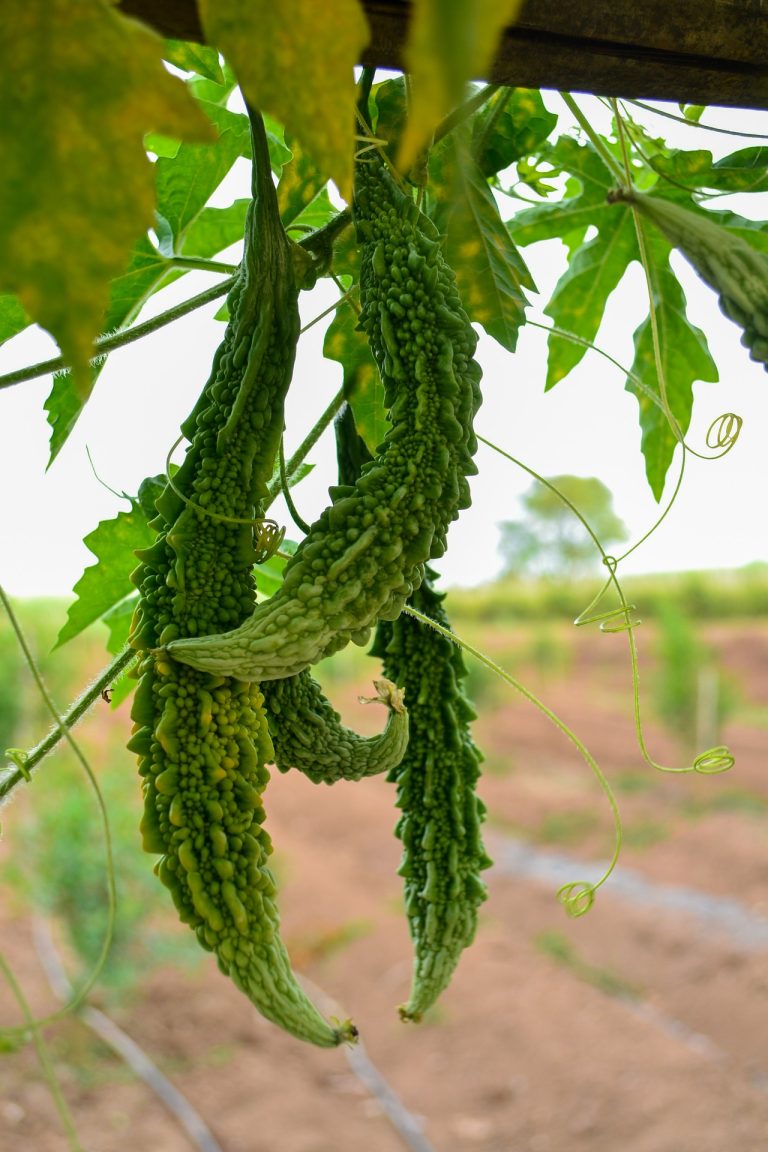Unveiling the Potential of Bitter Gourd: A Comprehensive Research Exploration
Introduction
Bitter gourd, scientifically known as Momordica charantia, is a distinctive vegetable renowned for its bitter taste and numerous health benefits. Also referred to as bitter melon or bitter squash, this tropical vine fruit belongs to the Cucurbitaceae family, which includes cucumbers, pumpkins, and squash. Beyond its culinary uses, bitter gourd has a rich history of traditional medicinal applications and continues to be a subject of scientific research due to its potential therapeutic properties. This article delves into the botanical characteristics, cultural significance, culinary uses, nutritional benefits, medicinal applications, and current research surrounding bitter gourd.

Botanical Characteristics and Cultivation
Bitter gourd is characterized by its oblong shape, warty exterior, and vibrant green color. It typically grows on climbing vines and produces distinctively shaped fruits with a bitter taste, varying in size from small, thumb-sized specimens to larger, elongated fruits. Native to tropical regions of Africa, Asia, and the Caribbean, bitter gourd thrives in warm, humid climates and is cultivated in both backyard gardens and commercial farms worldwide.
Cultivating bitter gourd requires well-drained soil, ample sunlight, and moderate watering. It is a fast-growing plant that benefits from trellising or support structures to maximize space and yield. Farmers often use organic farming practices to minimize pest infestations and enhance soil fertility, ensuring sustainable cultivation methods.
Culinary Uses and Nutritional Value
Despite its bitter flavor profile, bitter gourd is a prized ingredient in many culinary traditions, particularly in South Asian, Southeast Asian, and Caribbean cuisines. Its bitterness adds depth and complexity to dishes, balancing other flavors and textures. Bitter gourd can be prepared in various ways, including stir-frying, steaming, stuffing, and incorporating into soups and stews. In some cultures, bitter gourd is also pickled or consumed raw in salads for its purported health benefits.
From a nutritional perspective, bitter gourd is low in calories and rich in essential nutrients. It is an excellent source of vitamins C and A, as well as minerals such as potassium, magnesium, and iron. Bitter gourd also contains dietary fiber, which supports digestive health by promoting regular bowel movements and aiding in weight management.

Traditional Medicinal Uses
Bitter gourd has a long history of use in traditional medicine systems, including Ayurveda, Traditional Chinese Medicine (TCM), and herbal folklore in various cultures. It is revered for its potential therapeutic properties and has been traditionally employed to treat a wide range of ailments, including:
- Blood Sugar Management: Bitter gourd is widely studied for its hypoglycemic effects, making it a popular remedy for managing blood sugar levels in individuals with diabetes. Research suggests that compounds in bitter gourd may enhance insulin sensitivity and regulate glucose metabolism.
- Digestive Health: The bitter components in bitter gourd stimulate digestive enzymes and promote liver health, aiding in detoxification processes and supporting overall digestive function.
- Immune Support: Bitter gourd is rich in antioxidants such as flavonoids and polyphenols, which help combat oxidative stress and strengthen the immune system.
- Anti-inflammatory Properties: Some studies indicate that bitter gourd extracts may possess anti-inflammatory properties, potentially benefiting conditions related to inflammation, such as arthritis.
Current Research and Scientific Studies
In recent years, bitter gourd has attracted significant scientific interest due to its bioactive compounds and potential health benefits. Researchers are exploring various aspects of bitter gourd, including:
- Anticancer Potential: Preliminary studies suggest that bitter gourd extracts may exhibit anticancer properties by inhibiting the growth of cancer cells and inducing apoptosis (programmed cell death).
- Antimicrobial Activity: Bitter gourd extracts have shown antimicrobial activity against various pathogens, highlighting its potential in combating infections and supporting immune health.
- Cardiovascular Health: Research indicates that bitter gourd may have beneficial effects on cardiovascular health by reducing cholesterol levels, improving blood vessel function, and lowering blood pressure.
- Anti-obesity Effects: Compounds in bitter gourd are being studied for their potential role in weight management and obesity prevention by modulating fat metabolism and promoting satiety.

Cultural Significance and Global Impact
Bitter gourd holds cultural significance in many societies, where it is valued not only for its culinary uses but also for its medicinal properties and symbolic meanings. In Asian cultures, bitter gourd is associated with longevity and vitality, often consumed during festivals and auspicious occasions. Its bitter taste symbolizes resilience and the ability to endure challenges, reflecting cultural values of perseverance and strength.
From an economic perspective, bitter gourd cultivation supports livelihoods in rural communities and contributes to agricultural diversity. Its exportation to international markets enhances economic opportunities for farmers and promotes global culinary exchange, showcasing its adaptability and appeal across different cuisines.
Conclusion
In conclusion, bitter gourd stands as a testament to the intersection of culinary tradition, medicinal wisdom, and scientific inquiry. From its botanical origins and diverse culinary uses to its nutritional benefits and potential therapeutic applications, bitter gourd continues to captivate researchers, chefs, and health enthusiasts alike. As ongoing research sheds light on its bioactive compounds and health-promoting properties, bitter gourd holds promise as a versatile vegetable with profound implications for nutrition, medicine, and sustainable agriculture.
As we continue to explore the multifaceted facets of bitter gourd—from its bitter-sweet culinary allure to its potential as a natural remedy and nutritional powerhouse—the legacy of this remarkable vegetable persists, offering new insights and opportunities for enhancing human health and well-being.

